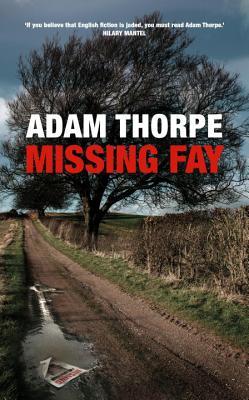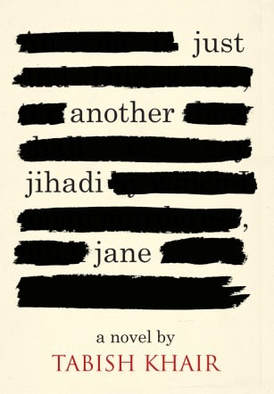Missing Fay by Adam Thorpe
Adam Thorpe’s eleventh novel is a psycho-geography of contemporary Lincolnshire, Brexit capital of the UK. From the splendour of Lincoln’s mediaeval cathedral quarter to its ugly council estates, from Lincolnshire’s nature reserves to its vast plains of agricultural land, we meet the diversity of characters who live and work there, whose lives interact in ways in which only the reader, with our privileged access to the details which they themselves may not notice, is aware. Central to these tenuous connections, yet perhaps the least noticed of all, is fourteen-year-old Fay and her dog, Pooch, who go missing in circumstances that are never made entirely clear – although there’s a strong hint towards the end. But unravelling the mystery isn’t the point of this story, for all of the characters have something missing from their lives, are searching for an answer that’s just beyond their reach.
Although the writing is superb from the beginning, I wasn’t sure how well this was going to work as a novel, each chapter bringing a new perspective zooming in on a fairly mundane existence. But that’s partly the point: reading further, and alighting on the interconnections (with just the right balance of subtlety and clarity), it builds into a bleak but engaging portrait of alienation. Heavily dependent on migrant labour for harvesting what little food our country produces, yet resentful of the “foreign” insurgence into small-town life, Lincolnshire epitomises our confused and irrational response to the Brexit referendum when we went to the polls to vote for isolation, increased poverty and racism. But, although Missing Fay does touch on this more blatant racism (most cleverly in the kindly Romanian care worker’s attitude to the Roma in her homeland), it addresses it most subtly in the Othering and suspiciousness of difference to which we are all prone. A profound examination of flawed humanity with, perhaps, the seeds of the solution in helping us recognise that prejudice isn’t confined to other people, but part of who we are.
Thanks to Jonathan Cape for my review copy. See my review of The Cut for another novel mapping the background to the unfortunate Brexit wrote in the UK.
Just Another Jihadi Jane by Tabish Khair
Fed up with feeling like an outsider in her own country, and reluctant to marry a man selected for her by her brother, Jamilla agrees to travel with Ameena to war-torn Syria. There, she volunteers her services at an orphanage and women’s refuge, while Ameena becomes the wife of one of the militants she has met online. Although both willing to give up certain freedoms for their religion, the young women become increasingly disillusioned by the restrictions and violence of life under Islamic rule. Once again, they feel like outsiders, but the consequences of dissent are more brutal in Syria than back home. We know that Jamilla gets out, because she’s narrating her story to a writer in Indonesia. But what about Ameena? Is she merely a pawn in her husband’s war?
After reading Jihadi last year, about an American man’s radicalisation, I was interested to come across a parallel story about the English female perspective. Tabish Khair, an Indian-born novelist based in Denmark, has clearly gone to some lengths to create an authentic Yorkshire background for his two main characters, but an editor might have told him that, unlike Americans, English students do not “graduate from high school”. Also, his attempt to render the Yorkshire accent in dialogue didn’t work for me: although t’ for the was no problem, Ah for I sounds Scottish to my inner ear. (Many northern English dialects do use a short a for the first person singular, which might have been the author’s intention.) Fortunately, that doesn’t detract too much from an interesting story. Thanks to Periscope for my review copy.























 RSS Feed
RSS Feed





















